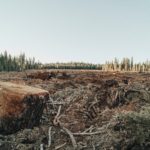 As part of their ESG commitments, a growing number of companies are adopting pledges to not buy soybeans produced on deforested land. Unfortunately, research from the University of Cambridge shows that these pledges have not really made much of a difference, and companies need to go much further and adopt zero-deforestation commitments across their supply chain.
As part of their ESG commitments, a growing number of companies are adopting pledges to not buy soybeans produced on deforested land. Unfortunately, research from the University of Cambridge shows that these pledges have not really made much of a difference, and companies need to go much further and adopt zero-deforestation commitments across their supply chain.
Indeed, the researchers found that existing pledges have reduced tree clearance in the Amazon by just 1.6% between 2006 and 2015. What’s more, in Cerrado, a tropical savannah in Brazil, zero-deforestation commitments have been poorly adopted, thus resulting in over half of soy-suitable forests being unprotected.
Tropical protection
The researchers explain that Brazil has the largest remaining tropical forests on the planet, but it is rapidly being cleared to grow crops and rear cattle. This is compounded by the surge in demand for soy that is resulting in nearly 5,000 km2 of rainforest being cleared each year.
This soy is largely used to feed pigs, cattle, chickens, and fish, but it also accounts for over 25% of global vegetable oil production and is a protein source in vegetarian and vegan diets. By 2021 around 100 companies had adopted a zero-deforestation commitment that would see deforestation eliminated from their supply chains.
Alas, the research suggests that many of those pledges were toothless in practice. What’s more, there is much less commitment to zero deforestation from small and medium-sized food companies.
“Zero-deforestation pledges are a great first step, but they need to be implemented to have an effect on forests – and right now it’s mainly the bigger companies that have the resources to do this,” the researchers explain. “If soybean traders actually implemented their global commitments for zero-deforestation production, current levels of forest clearance in Brazil could be reduced by around 40 percent.”
Tip of the iceberg
Sadly, the researchers believe that this is likely to be the tip of the iceberg, as the supply chains of food products such as cocoa and palm oil are significantly more complex and therefore much harder to effectively monitor.
“If supply chain policies intend to contribute to the task of tackling deforestation in Brazil, it’s crucial to expand zero-deforestation supply chain policies beyond soy,” they explain.
They hope that their findings will force a rethink of the effectiveness of the commitments made by the food sector to halt deforestation and cajole political leaders to do more to support conservation efforts.
“Supply chain governance should not be a substitute for state-led forest policies, which are critical to enable zero deforestation monitoring and enforcement, have better potential to cover different crops, land users, and regions,” the authors conclude.